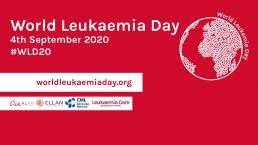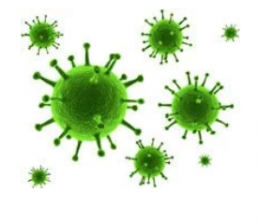Acalabrutinib Shows Promising Results for the Treatment of CLL
Acalabrutinib Shows Promising Results for the Treatment of CLL
This article was originally published by Targeted Oncology
Jennifer Woyach, MD, an associate professor in the Department of Internal Medicine at The Ohio State University Comprehensive Cancer Center–James, discusses the rationale and efficacy for the phase 1/2 trial of acalabrutinib (Calquence) in patients with chronic lymphocytic leukemia (CLL).
Woyach explains that acalabrutinib is an inhibitor of Bruton’s kinase (BTK), and it’s a second-generation covalent inhibitor. Similar to ibrutinib (Imbruvica), it binds irreversibly to BTK, but it is more selective than ibrutinib. Ibrutinib inhibits many structurally similar proteins, while acalabrutinib inhibits less, which is important for toxicity. She thinks that some of the toxicity seen with ibrutinib are because of those alternative targets. Some of the toxicities may lessen with acalabrutinib.
In treatment-naïve and relapsed/refractory disease, the data has looked promising with this agent, according to Woyach. In 1 study with 53 months of follow-up for 99 patients with treatment-naïve CLL, about 86% of the patients were still on treatment, which she says is impressive. The event-free survival at 48 months was 90%. This is looking promising with acalabrutinib, which is similar to what has been seen with ibrutinib in this patient population. Although she says it’s difficult to compare trial to trial, it’s good to see that it looks similar to ibrutinib in this setting.
Online webinar: Telling Others About My CLL Diagnosis
Online webinar: Telling Others About My CLL Diagnosis
How do you tell family and friends that you have leukemia? Chronic Lymphocytic Leukemia (CLL) patients often don’t “look sick” so it may be hard for your family, friends and co-workers to know what you are going through. How do you help others understand your condition?
Join us for our next CLL Answers Now program on Wednesday, September 16th at 10:30 am PT/1:30 pm ET as host and CLL patient Michele Nadeem-Baker discusses with social worker Robin Katz from Lurie Cancer Center of Northwestern University communication tips for people living with CLL, and the best way to share details of their condition. They will also discuss how to talk to their loved ones about their diagnosis and give advice to people newly diagnosed.
Send your questions in ahead to cll@patientpower.info.
Wednesday, September 16, 2020 at 10:30 AM Pacific Time (US and Canada)
Can Culturing CAR T Cells With Ibrutinib Improve Their Efficacy in CLL?
Can Culturing CAR T Cells With Ibrutinib Improve Their Efficacy in CLL?
This article was originally published by Cancer Therapy Advisor
Efficacy of chimeric antigen receptor (CAR) T-cell (CAR-T) therapies in chronic lymphocytic leukemia (CLL) have lagged behind the efficacy they appear to have in other hematological malignancies such as acute lymphoblastic leukemia or diffuse large B-cell lymphoma.
There’s a growing recognition that some of the CAR-T shortfalls in CLL are due to an impaired fitness of T cells in CLL patients. Some research has shown, however, that sustained remission of CLL is associated with enrichment of a less-differentiated, early-memory phenotype of T cells in the apheresis product used to make CAR-T therapies.1 Such findings have galvanized interest in approaches to enhance this T-cell population during the immunotherapy manufacturing process as a possible route for overcoming treatment resistance.
Now, a small study in the International Journal of Cancer reported that culturing CLL patients’ T cells with the tyrosine kinase inhibitor ibrutinib — which among other effects, inhibits a pathway involved in T-cell differentiation — boosted the viability, function, and expansion of CLL patient-derived CAR T cells as well as enriching them with a less-differentiated phenotype.2
World Leukemia Day - 4 September 2020
World Leukemia Day - 4 September 2020

World Leukemia Day is on September 4th and we’d love you to join us.
We are looking for people from all around the globe to participate in increasing the awareness of leukemia that is so vital to help improve the lives of patients after diagnosis.
Here are 3 ways to get involved:
1. Share your leukemia story
Encourage others to share their leukemia story on social media and use the hashtags #WLD2020 or #WorldLeukemiaDay. More information is available at www.worldleukemiaday.org
2. Share your ‘spotty selfie’
Dig out your spotty clothes and share your ‘spotty selfie’ on social media with the hashtag #WLD20 on September 4th to show your support.
3. Spread the word
Help raise awareness of the symptoms of leukemia by using our social media graphics and sharing these across your social media platforms along with the hashtags #WLD20 #worldleukemiaday.
You can download all the social media graphics here > https://bit.ly/WorldLeukemiaDay
World Leukemia Day isn’t just about raising awareness, it’s also about education and learning how to spot the signs and symptoms. For some types of leukemia early diagnosis is crucial, if you are experiencing any of the symptoms, speak to a healthcare professional about your concerns.
Find out more about the signs and symptoms here > https://www.worldleukemiaday.org/what-is-leukemia
We look forward to seeing your ‘spotty selfies’ on September 4th.
Your CLL Advocates Network



CLL Advocates NZ Newsletter Issue 3
CLL Advocates NZ Newsletter Issue 3
Greetings
Research is a critical part of understanding diseases and their treatment. As set out in our Trust Deed, a key objective for CLL Advocates NZ is to ‘promote and support NZ-based research on CLL, including the value and importance of developing and participating in clinical trials, and improving the quality of NZ data on CLL. In pursuit of this objective we’re developing or supporting a number of initiatives:
- Clinical trials in NZ. You can find information on our website about ClinTrial Refer New Zealand. If you’re interested in keeping up to date with trials of CLL treatments in NZ, you can download the free app supported by HSANZ (Haematology Society of Australia and NZ) here. A number of New Zealanders have been enrolled in trials, often gaining access to unfunded medications, including “last resort” treatment options for advanced disease. There are numerous such trials actively recruiting as I write. One is Rob Weinkove’s work at the Malaghan Institute in Wellington, on CAR – T cell therapy. Trials of Zanubrutinib vs Ibrutinib are also recruiting in New Zealand.
- Second malignancies in CLL. We have proposed a summer studentship/research grant in the Bay of Plenty on this topic. Second malignancies are one of the commonest causes of death in CLL. They include Richter’s Syndrome and skin cancers, including melanoma. The project should start at the end of 2020. Having been a researcher in such studies myself, I know that patient involvement in research projects often significantly increases their own understanding of the disease, as they often involve frequent contact with health professionals and present good opportunities to talk about CLL with them.
- A PhD research study on the use of cannabis as a medicine for cancer patients. Dr Karen Oldfield is a PhD candidate at Victoria University of Wellington and a Senior Clinical Research Fellow at the Medical Research Institute of New Zealand, who is looking at the use of cannabis as a medicine in NZ. She’s inviting cancer patients to take part in a 5-10 minute online survey about their thoughts on this topic. All information collected will be treated as confidential. This is a valuable research project, as well as a way of fostering links between CLL patients and NZ research groups, and I warmly encourage you to take part. If you’re interested in helping with this research, go to this link on our website.
Finally, do remember the CLL forum we are having online and live at LBC headquarters on 14 October, 5.30 – 7.00pm. Invitations and details will be coming out shortly.
Best wishes
Neil Graham
“Medical Cannabis: Knowledge, Attitudes and Expectations amongst NZ Health Care Professionals and their Patients”
Invitation to take part in survey:
“Medical Cannabis: Knowledge, Attitudes and Expectations amongst NZ Health Care Professionals and their Patients”
Dr Karen Oldfield is a PhD candidate at the Victoria University of Wellington and a Senior Clinical Research Fellow at the Medical Research Institute of New Zealand who is looking at the use of cannabis as a cancer medicine in NZ. All information collected will be treated in a confidential manner and will not be disclosed to any other agencies. If you are interested in helping with this research, read on…
Dr Oldfield has approached CLL Advocates NZ to invite CLL patients to take part in this project:
“Medical cannabis is a topical subject. As part of my PhD research, I am seeking NZ residents over the age of 18 with an oncology/cancer diagnosis to take part in a 5-10 minute online survey about their thoughts about the use of cannabis as medicine. For further information, you can find the participant information sheet here https://is.gd/OncInfo2 . If you are keen to take part, please find the survey at the following link: https://is.gd/OncPatientQ. Thanks for taking the time to consider participating in this research!”
We encourage you to help with this valuable study.
CLL Diagnosis Preceded by Decades of Increased Infection Susceptibility
CLL Diagnosis Preceded by Decades of Increased Infection Susceptibility
This article was originally published by Cancer Therapy Advisor
Chronic lymphocytic leukemia (CLL) is well known for its close relationship with immune dysfunction, with around a third of patient deaths attributable to bacterial or viral infections. And while the relative risk of death due to the malignancy itself has declined over the past few decades, the risk of death from infection among those with CLL has remained constant, some research suggests.1
Infections often precede a formal diagnosis of CLL. Patients are known to suffer severe infections such as pneumonia up to 10 years prior to being diagnosed. Such findings pose a chicken-or-egg conundrum: Does the immune dysfunction occur prior to the development of CLL, potentially driving the development of the malignancy, or do CLL cells arise first, causing immune dysfunction long before the disease is diagnosed?
Shedding fresh light on this question, a group of Danish researchers undertook a retrospective analysis of nationwide Danish cancer registries and examined CLL patients’ history of antimicrobial use as a proxy for infection susceptibility. In line with previous studies, the researchers found that antimicrobial use began to rise 6 years prior to CLL diagnosis.
But even before then, patients with leukemia had used more macrolides, antimycotics, and antivirals than healthy controls for up to 22 years before they were diagnosed. The authors wrote that this time window jibes well with the theory that immune dysfunction, and/or infections, develop prior to CLL and could potentially play a causal role in driving the disease. The findings were published last month in Leukemia.2
Burger Reviews BTK Inhibitors and Beyond in Frontline CLL
Burger Reviews BTK Inhibitors and Beyond in Frontline CLL
This article was originally published by Targeted Oncology
During a virtual Case Based Peer Perspectives event, Jan A. Burger, MD, PhD, professor, Department of Leukemia, Division of Cancer Medicine, The University of Texas MD Anderson Cancer Center in Houston, TX, discussed testing and the treatment options for chronic lymphocytic leukemia (CLL), based on the a case of 71-year-old female patient.
Targeted OncologyTM: What testing would you order to confirm diagnosis if you saw this patient in the clinic?
BURGER: We need to establish the diagnosis by flow cytometry and then we would do, at a minimum, FISH cytogenetics and, ideally, the mutational status. Cytogenetics can change, but
mutational status usually doesn’t change. If that’s been established somewhere outside [of your clinic], then you don’t have to repeat that test.
It’s important to repeat cytogenetics if you talk about the relapse setting. But here, we’re treating in the frontline setting, and she was tested. She was found to be IGHV unmutated and [positive
for] del(11q). That, traditionally, has been regarded as a higher-risk disease status because these patients respond OK to standard chemotherapy, but they have short remissions and survival times with FCR [fludarabine, cyclophosphamide, and rituximab (Rituxan)], BR [bendamustine plus rituximab], and those kinds of regimens compared with low-risk patients, such as those [who are positive for] deletion 13q and have IGHV mutated disease.
In terms of these sequences, when you see a patient with lymphocytosis, you send for flow cytometry, and part of the flow cytometry panel can test for additional markers, CD38 and ZAP-70. We have it [at MD Anderson], but I’m not sure if there are any outside routine flow cytometry labs reporting CD38 positivity or negativity or ZAP-70. These markers used to be very popular 10
years or so ago when IGHV-mutation status was not so commonly done and was more complicated to get. Nowadays, there’s a shift with sending a sample directly for IGHV-mutation testing.
Coutre Evaluates Treatment Options in Relapsed/Refractory CLL
Coutre Evaluates Treatment Options in Relapsed/Refractory CLL
This article was originally published by Targeted Oncology
During a virtual Case Based Peer Perspectives event, Steven Coutre, MD, professor of Medicine (Hematology), Standford University Medical Center, reviewed a case of a 53-year-old woman who first presented with elevated white blood cell count. The patient was later diagnosed with chronic lymphocytic leukemia (CLL).
Targeted Oncology™: What are your initial impressions of this case?
COUTRE: I think we’d all agree that this is a patient who requires observation at this point. Clinically, this patient is at Rai stage 0. That 1 × 1 cm [lymph node] doesn’t qualify as lymphadenopathy. It certainly doesn’t need a CT scan or a bone marrow, and we can choose whether to do mutation analysis or FISH, but those results are not going to change the management approach.
To establish a diagnosis, flow cytometry was carried out showing the typical immunophenotype. Additional testing was conducted, showing the patient has no cytogenetic abnormality by FISH. Unfortunately, the patient had a bone marrow done, and it showed evidence of CLL. She was observed and did fine for 5 years, and she’s still quite young. Her WBC count has more than doubled, she’s significantly anemic, her platelet count has gone down, and the lymphadenopathy is 4 cm × 3
What are the treatment options for this patient?
The RESONATE trial [NCT01578707] evaluated patients who were previously treated for CLL and SLL [small lymphocytic leukemia] and who were randomized to receive ibrutinib [Imbruvica] at 420 mg once daily versus IV ofatumumab [Arzerra] at an initial dose of 300 mg, followed by 2000 mg for 11 doses over 24 weeks.¹
It’s no big surprise how well ibrutinib did compared with ofatumumab. The differences were highly significant. The most recent data involving 6-year follow-up published last year in Blood show that the median PFS [progression-free survival] is still not reached. These patients who entered this trial were not your average patients. The patient in our case would not have been eligible for the trial. Having a 4-year response to FCR would not [have met eligibility] for this trial. These were much worse relapsed patients, and yet here we are in 2020, and the median PFS has still not been reached with ibrutinib in this trial versus 8.11 months for the ofatumumab arm [HR, 0.133; 95% CI, 0.099-0.178].
COVID-19 Severity in CLL Correlates With 3 Disease Characteristics
COVID-19 Severity in CLL Correlates With 3 Disease Characteristics
This article was originally published by Targeted Oncology
The severity of coronavirus disease 2019 (COVID-19) increases with age in patients with chronic lymphocytic leukemia (CLL). However, age and the existence of comorbidities may not impact death from COVID-19, according to results from a retrospective international study published in Leukemia.
The study was conducted through a collaboration between the European Research Initiative on CLL (ERIC) and CLL Campus. Study results came from a survey completed by 121 investigators at 118 sites around the world. Of the survey responder, 58 investigators confirmed that there were COVID-19 cases in their CLL cohort. The majority of the cases were identified in Europe (74%), followed by Asia (13.6%), Latin America (4.2%), Africa (3.4%), Canada (2.5%), and Australia (1.7%). Altogether, 156 cases of COVID-19 in patients with CLL were reported from a pool of 15,083 patients. COVID-19 cases were symptomatic and required hospitalization in 141 patients. Preventative measures for SARS-CoV-2 were reported by all but 0.8% of the sites.
“To the best of our knowledge, we present here the largest European series of patients with CLL infected by SARS-CoV-2 and experiencing COVID-19. Among the European cases (96.8% of the total) included in this project, almost 90% originated from Italy and Spain, hence mirroring the dynamics of the SARS-CoV-2 pandemic in Europe with Italy being the first country in a number of infected individuals followed by Spain, with a lower incidence,” wrote the study authors led by Paolo Ghia, MD, PhD of the Università Vita-Salute San Raffaele.







